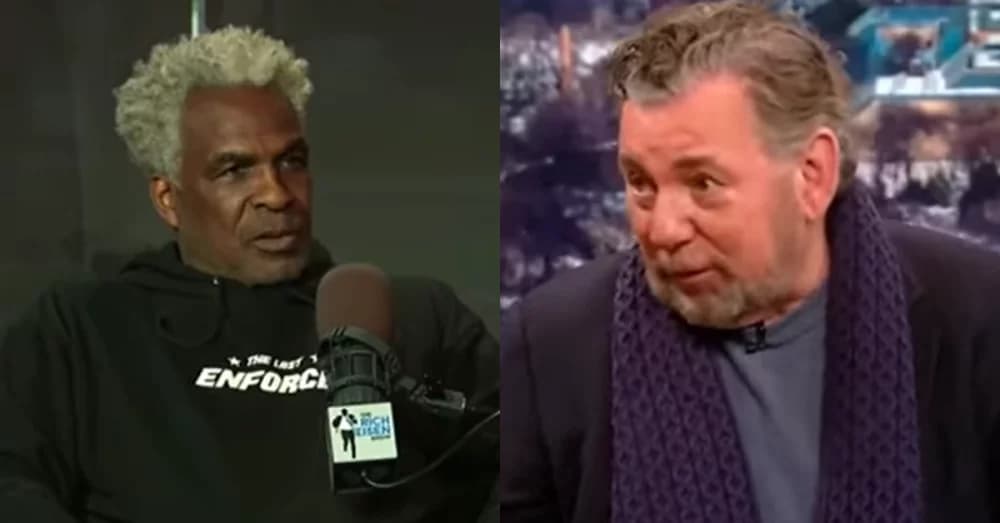Charles Oakley Stand Firm in Garden Boycott Amid Ongoing Feud with Knicks Owner James Dolan

Former New York Knicks enforcer, Charles Oakley, remains steadfast in his decision to steer clear of Madison Square Garden, underscoring the deep-seated animosity between him and Knicks owner James Dolan. In a candid interview with the Associated Press (AP), Charles Oakley shed light on the latest developments in the ongoing feud that has cast a shadow over the storied franchise.
Recounting recent events, Oakley revealed that Dolan’s legal team reached out to his representatives, extending an olive branch in an attempt to mend fences. However, Oakley made it unequivocally clear that any reconciliation must be preceded by a formal apology from Dolan himself.
“I guess their lawyer called my lawyer, saying it’s a good time for you to come back to the garden,” Oakley disclosed to AP, highlighting the nature of the dialogue. “They’ve got to apologize. We’ll go from there. Can [Dolan] be man enough to say, ‘Mistakes happen.’ And he made one.”
The rift between Oakley and Dolan traces back to a highly publicized altercation in 2017 when Oakley was forcibly ejected from Madison Square Garden during a game and subsequently arrested following a confrontation with MSG security. Despite being cleared of misdemeanour assault charges in 2018, the incident left indelible scars, both personally and professionally.
Charles Oakley’s stance underscores the broader implications of the ongoing feud, which extend beyond mere personal grievances to encompass broader issues of accountability and transparency within the Knicks organization. As Oakley’s eloquently articulated, the incident not only tarnished his reputation but also had a profound impact on his family.
“Just be transparent about what you put someone through and how you changed their life,” Oakley lamented, reflecting on the toll of the incident. “This definitely changed my life. My daughter Googled me, and they showed them pulling me out of the garden. That is bad. That is hell for a kid to see that.”
Despite the adversity he has faced, Oakley remains unwavering in his loyalty to the Knicks franchise and its passionate fanbase. However, until he receives the apology he seeks from Dolan, Oakley has made it clear that he will continue to boycott Madison Square Garden, symbolizing a poignant stand against injustice and institutional negligence.
As the saga between Oakley and Dolan unfolds, it serves as a sobering reminder of the complexities that often underlie the relationships between sports icons and team owners, prompting introspection and scrutiny of the broader dynamics at play within professional sports organizations.





